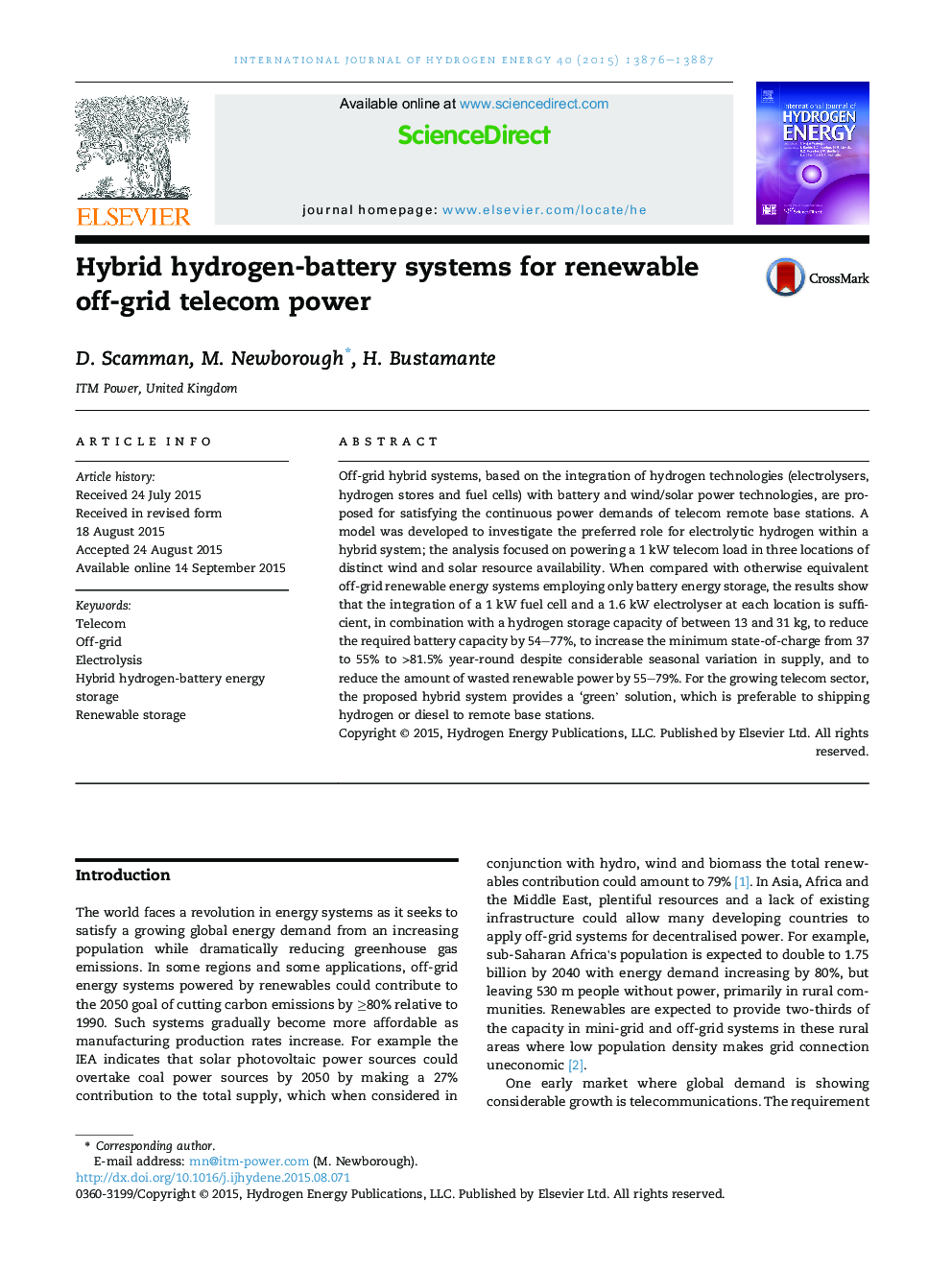| کد مقاله | کد نشریه | سال انتشار | مقاله انگلیسی | نسخه تمام متن |
|---|---|---|---|---|
| 1270445 | 1497433 | 2015 | 12 صفحه PDF | دانلود رایگان |
• Remote telecom base stations require continuous power from variable renewables.
• Renewable energy systems require energy storage to manage large supply fluctuations.
• Batteries exhibit short lifetimes in renewable energy systems.
• Integrating hydrogen energy facilitates close regulation of battery state-of-charge.
• Hybrid hydrogen-battery systems provide a more reliable solution for off-grid power.
Off-grid hybrid systems, based on the integration of hydrogen technologies (electrolysers, hydrogen stores and fuel cells) with battery and wind/solar power technologies, are proposed for satisfying the continuous power demands of telecom remote base stations. A model was developed to investigate the preferred role for electrolytic hydrogen within a hybrid system; the analysis focused on powering a 1 kW telecom load in three locations of distinct wind and solar resource availability. When compared with otherwise equivalent off-grid renewable energy systems employing only battery energy storage, the results show that the integration of a 1 kW fuel cell and a 1.6 kW electrolyser at each location is sufficient, in combination with a hydrogen storage capacity of between 13 and 31 kg, to reduce the required battery capacity by 54–77%, to increase the minimum state-of-charge from 37 to 55% to >81.5% year-round despite considerable seasonal variation in supply, and to reduce the amount of wasted renewable power by 55–79%. For the growing telecom sector, the proposed hybrid system provides a ‘green’ solution, which is preferable to shipping hydrogen or diesel to remote base stations.
Journal: International Journal of Hydrogen Energy - Volume 40, Issue 40, 26 October 2015, Pages 13876–13887
